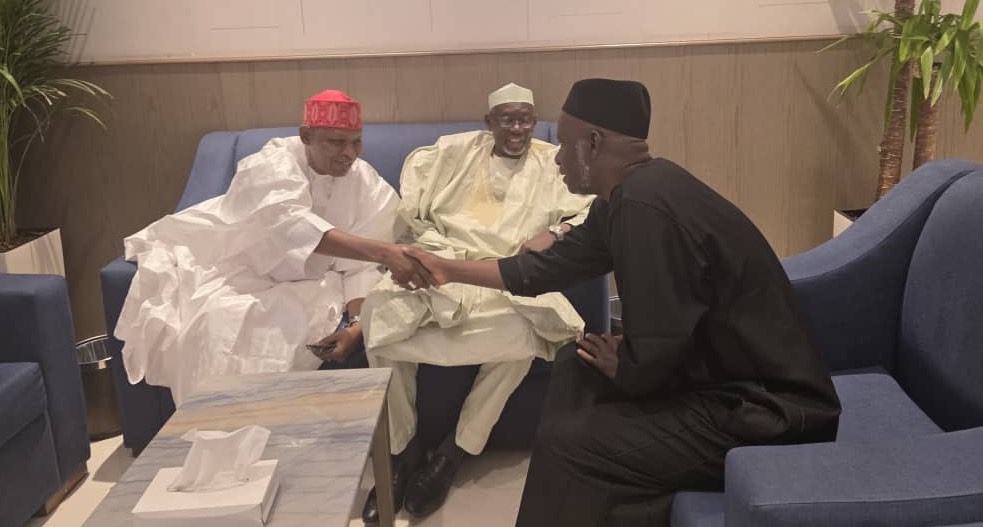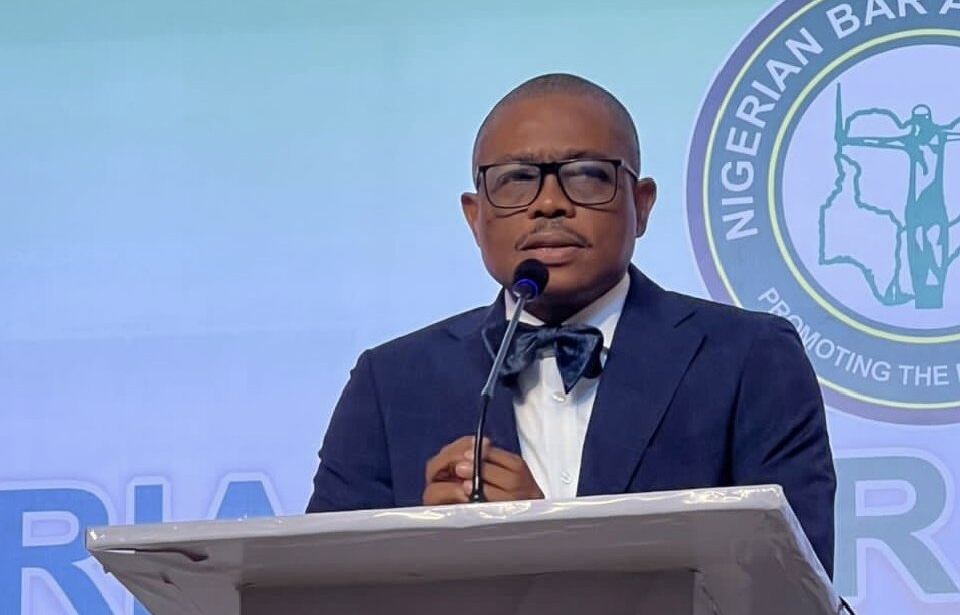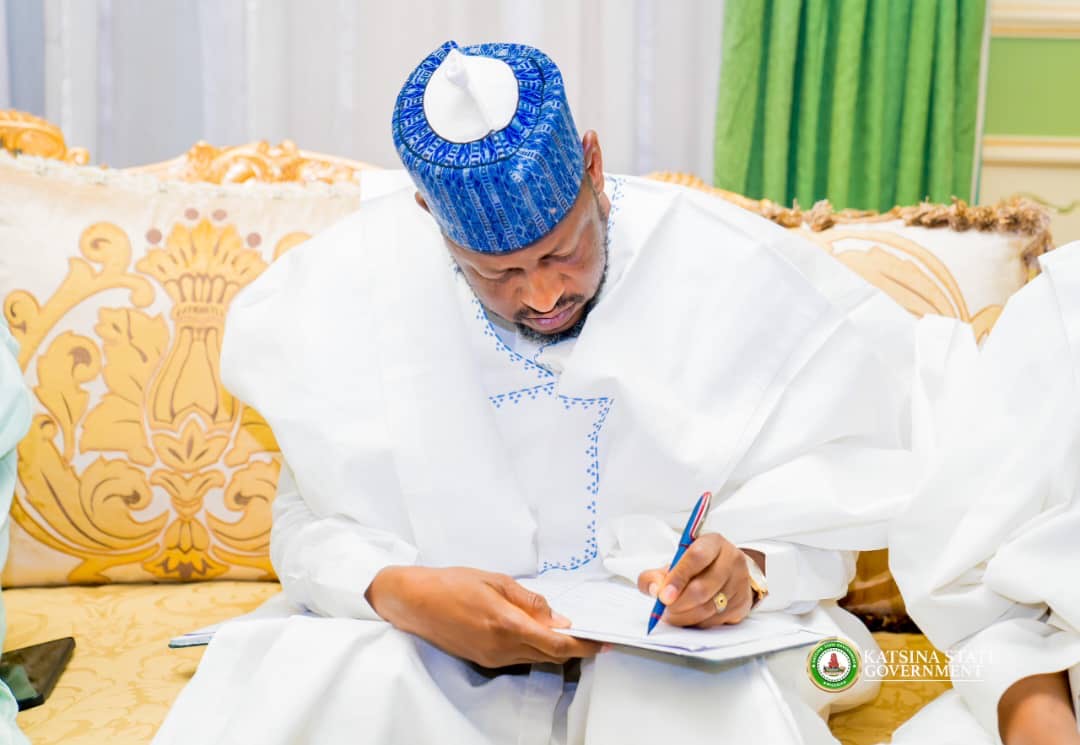Aminu Dantata Buried in Medina

The Holy City of Madinah in Saudi Arabia served as the solemn venue for the funeral prayer of the revered elder statesman, Alhaji Aminu Alhassan Dantata, who passed away on June 28 in Abu Dhabi, United Arab Emirates, at the age of 94. The Janazah prayer, held on Tuesday after Maghrib, drew a multitude of prominent Nigerians, close family members, and friends, reflecting the late mogul's profound impact. Dignitaries in attendance included Kano State Governor Abba Kabir Yusuf, Jigawa State Governor Umar Namadi, business titan Aliko Dangote, Emir of Kano His Highness Muhammadu Sanusi II (and also Emir Aminu Ado Bayero, as noted in a separate report), ranking member of the House of Representatives Alhassan Ado Doguwa, Deputy Senate President Senator Barau Jibrin, and immediate past APC Chairman Dr. Abdullahi Ganduje, among many other notable personalities.
Representing the Government and people of Katsina State, Deputy Governor Faruk Lawal Jobe was present at the funeral. He offered heartfelt prayers for the soul of the late Alhaji Dantata and extended condolences to his family and all those he left behind. Mr. Jobe conveyed the condolence message from Katsina State Governor Dikko Umaru Radda, who joined in mourning the significant loss to both the North and Nigeria. Speaking after the prayer, the Deputy Governor lauded Mr. Dantata, describing him as a man who lived a simple yet profoundly impactful life, renowned for his generosity, unwavering faith, and wisdom. He emphasized that the legacy of Alhaji Dantata, particularly his immense contributions to business and humanity, would forever resonate in the hearts of many.
The federal government delegation, which departed Nigeria late Sunday and arrived in Madinah early Monday, was led by the Minister of Defence and former Governor of Jigawa State, Alhaji Muhammad Badaru Abubakar. The delegation comprised the Attorney General of the Federation and Minister of Justice, Lateef Fagbemi, SAN; the Minister of Information and National Orientation, Alhaji Mohammed Idris; the Minister of State for Housing and Urban Development, Honourable Yusuf Abdullahi Ata; and Hassan Abdullahi, Director of Internal Security at the Office of the National Security Adviser (ONSA). Prominent Islamic clerics, including Dr. Bashir Aliyu Umar, Sheikh Aminu Ibrahim Daurawa, and Khalifa Abdullahi Muhammad (Imam of the Dantata Mosque in Abuja), also accompanied the delegation. Officials from the Nigerian Consulate General in Jeddah, led by Ambassador Ibrahim Moddibbo, along with Ambassador Muazzam Ibrahim Nayaya and Defence Attaché Major General Adamu Hassan, coordinated the funeral arrangements, including the burial at Al-Baqi Cemetery following prayers at the Prophet’s Mosque.
In a mark of profound respect for the late elder statesman, the Senate announced the postponement of the North-West Zonal Public Hearing on the review of the 1999 Constitution. Originally slated for Kano, the postponement was confirmed yesterday during plenary after lawmakers observed a minute of silence in Dantata's honour. Senate President Godswill Akpabio attributed the decision to the Senate's leadership involvement in the funeral arrangements, stating that a new date for the North-West hearing would be determined after consultations with regional stakeholders. Senator Barau Jibrin, Deputy Senate President and Chairman of the Senate Ad-Hoc Committee on the Review of the 1999 Constitution, who heads the North-West zonal hearing, was also present in Saudi Arabia as part of the federal government delegation for the funeral.
While the North-West hearing is on hold, the other five zonal public hearings are proceeding as scheduled on Friday, July 5, and Saturday, July 6. These include sessions in Lagos (South-West), Enugu (South-East), Ikot Ekpene (South-South), Jos (North-Central), and Maiduguri (North-East). These hearings are an integral part of a comprehensive national engagement process designed to gather input from Nigerians on proposed amendments to the 1999 Constitution. Key reforms on the agenda encompass the potential creation of 31 new states, the establishment of state police, local government autonomy, electoral reforms, and provisions for enhanced gender representation.
Discussions will cover over 50 proposed constitutional amendments, with significant attention given to bills that aim to enshrine autonomy and define tenure for local government councils through constitutional guarantees, alongside the establishment of an independent National Local Government Electoral Commission (NALGEC). On security, bills propose the creation of state police and state security councils to manage sub-national internal security. Fiscal reforms include empowering the Revenue Mobilization, Allocation, and Fiscal Commission (RMAFC) for compliance enforcement and setting constitutional timeframes for budget presentations. Gender inclusivity is addressed with a proposed amendment reserving additional seats for women in national and state legislatures. Traditional institutions may see structural enhancements with proposals for national, state, and local councils for monarchs. Electoral reforms involve bills for independent candidacy and diaspora voting. Judicial overhauls are also on the table, with proposals for mandatory judgment timelines and expanded election tribunal jurisdiction. Additionally, bold proposals suggest transferring items like labour and shipping from the Exclusive to the Concurrent Legislative List, granting states more legislative authority. The most politically sensitive issue remains state creation, with 31 separate memoranda received from various regions. The Senate’s Constitution Review Committee underscores the critical importance of citizen participation, urging Nigerians to attend and contribute to ensure the reform process genuinely reflects national aspirations. The Senate remains dedicated to a transparent and participatory constitutional review, addressing longstanding national questions through legislative action.









